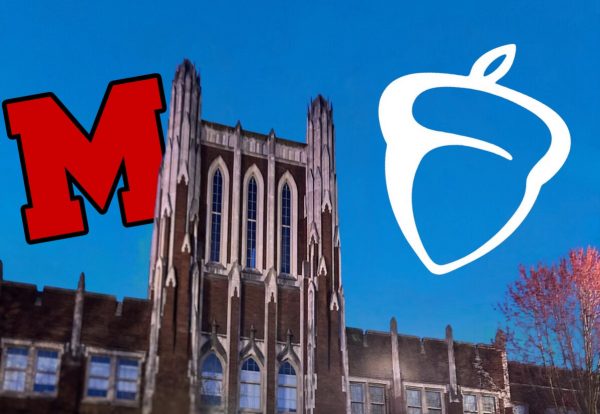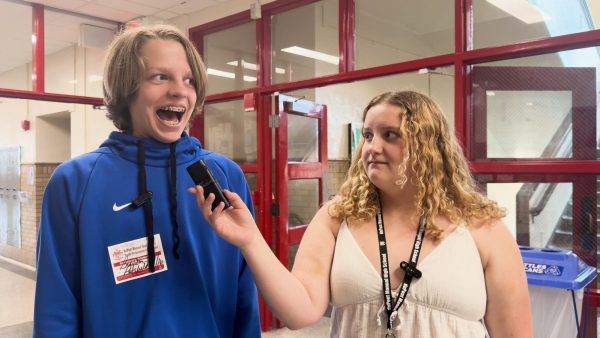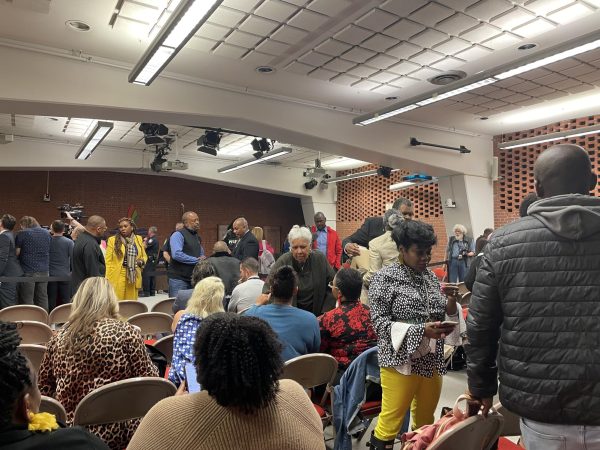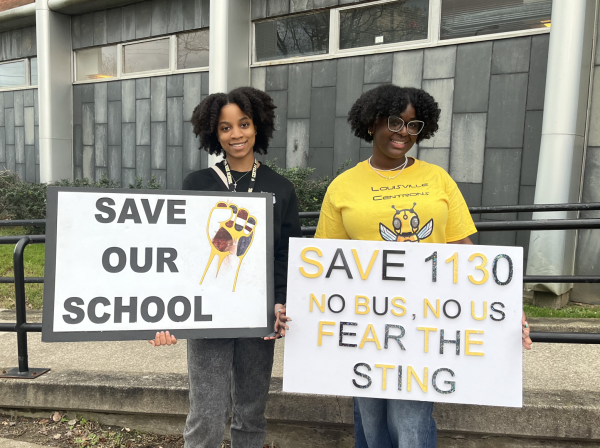November SBDM Meeting gives update on dress code and school policies
November 7, 2019
November’s School-Based Decision Making (SBDM) Board meeting commenced in the MAC Lab this Wednesday with policy decisions and state testing data on the agenda.
The November SBDM meeting is set to take place at 3. Stay tuned for live updates. pic.twitter.com/9V8OfXZEgh
— Manual RedEye (@manualredeye) November 6, 2019
The meeting had several guests, one of whom was Assistant Principal Paula Boggs, who presented an update on the Dress Code Committee reviewing the school dress code.
She provided a document that had the current progress, including the members and future action plan for the dress code.
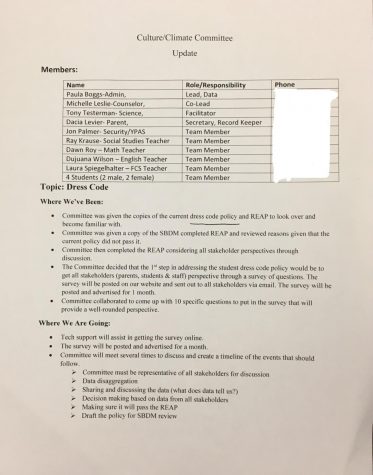
Dr. Robin Weiss, a parent representative, brought up that there should be more parent representatives on the committee that had no previous connections with Manual other than their students attending.
Currently, Boggs and the Dress Code Committee have developed a survey that will feature ten questions to provide a well-rounded perspective from all stakeholders in the dress code.
Parent representatives on the council discussed concerns over the lack of beta testing for the survey, but Mr. Chris Applegate (Science) proposed a compromise.
“Grab a study skills class and do a beta test to see whether the questions are resulting in answers that we need,” Mr. Applegate said.
After the survey has been available to stakeholders for a month, the Dress Code Committee will review the results, complete the Racial Equity Analysis Protocol (REAP) on the proposed code and then present it for SBDM review.
“We’re going to take the steps necessary to continue but we can’t do the work of a committee that is already established,” Principal Darryl Farmer said.
After Boggs, Assistant Principal Craig Klingenfus gave a presentation on state testing data.
The data described proficiency rates for Reading and Math on the ACT, Science and On-Demand Writing for the Juniors in 2019.
Manual has 101.8 proficiency rates for Reading and Math on the ACT, with J Graham Brown School being the only school in the district that had higher rates in ACT Reading.
Along with data on how proficient the school was, there were noticeable gaps between certain demographics.
There was a 32.1 proficiency rate gap between African-American students and White students on the Math and Reading test in 2019.
As well, there was a 25.7 point gap between free and reduced lunch students and non-free and reduced lunch students on the End of Course science exam.
“This year was what I considered a pilot year for the science exam because teachers and students had never experienced it before. I don’t plan to start using the data until the End of Course exam has been given for at least two years,” said Klingenfus.
The composite school score for the ACT has gradually tapered since 2015, which Assistant Principal Klingenfus believes will have to be addressed if it continues.
Lastly, there was data presented that showed that the number of AP tests decreased by 75 in the year of 2018 and 2019, which was from efforts of Manual counselors to discourage students from “biting off more than they could chew” according to Klingenfus.
The administration is pleased that this year, as the number of tests taken decreased, the pass rate increased from 80.7% to 86.6%.
Manual’s AP exam pass rate is at its highest in years. pic.twitter.com/eb0Ri24HIO
— Manual RedEye (@manualredeye) November 6, 2019
As well, the SBDM Council prepared to make the second read on the reviewed homework policy, meaning that there would be one more read until it was permanently finished.
However, the members made a change to a sentence to clarify that teachers should not assign abnormal homework only on breaks and extended weekends, while before it read that this policy applied for every weekend.
The homework policy is set to revert to the first reading due to a wording issue.
— Manual RedEye (@manualredeye) November 6, 2019
This change will result in the policy returning to the first read, meaning that three more SBDM meetings will take place before it is approved.
As well as the homework policy, two more policies were reviewed, including the writing parent/guardian student policy.
The writing policy was approved, but the wording in the parent/guardian policy was adjusted to guarantee that students, teachers and parents/guardians had equal roles in the policy.
The meeting adjourned at 4:14 without completing the agenda, presumably because of the community dialogue on vaping and e-cigarettes.













